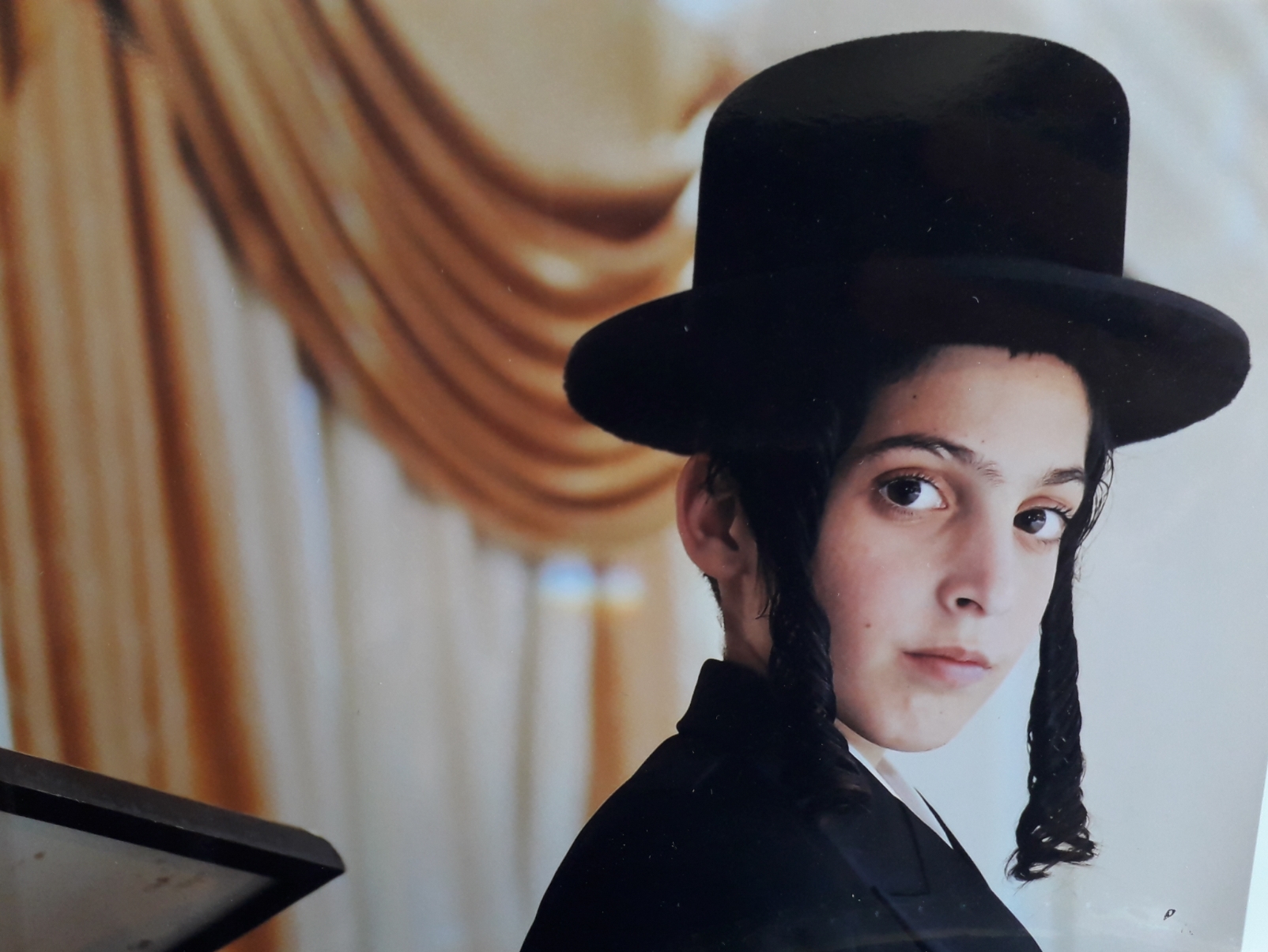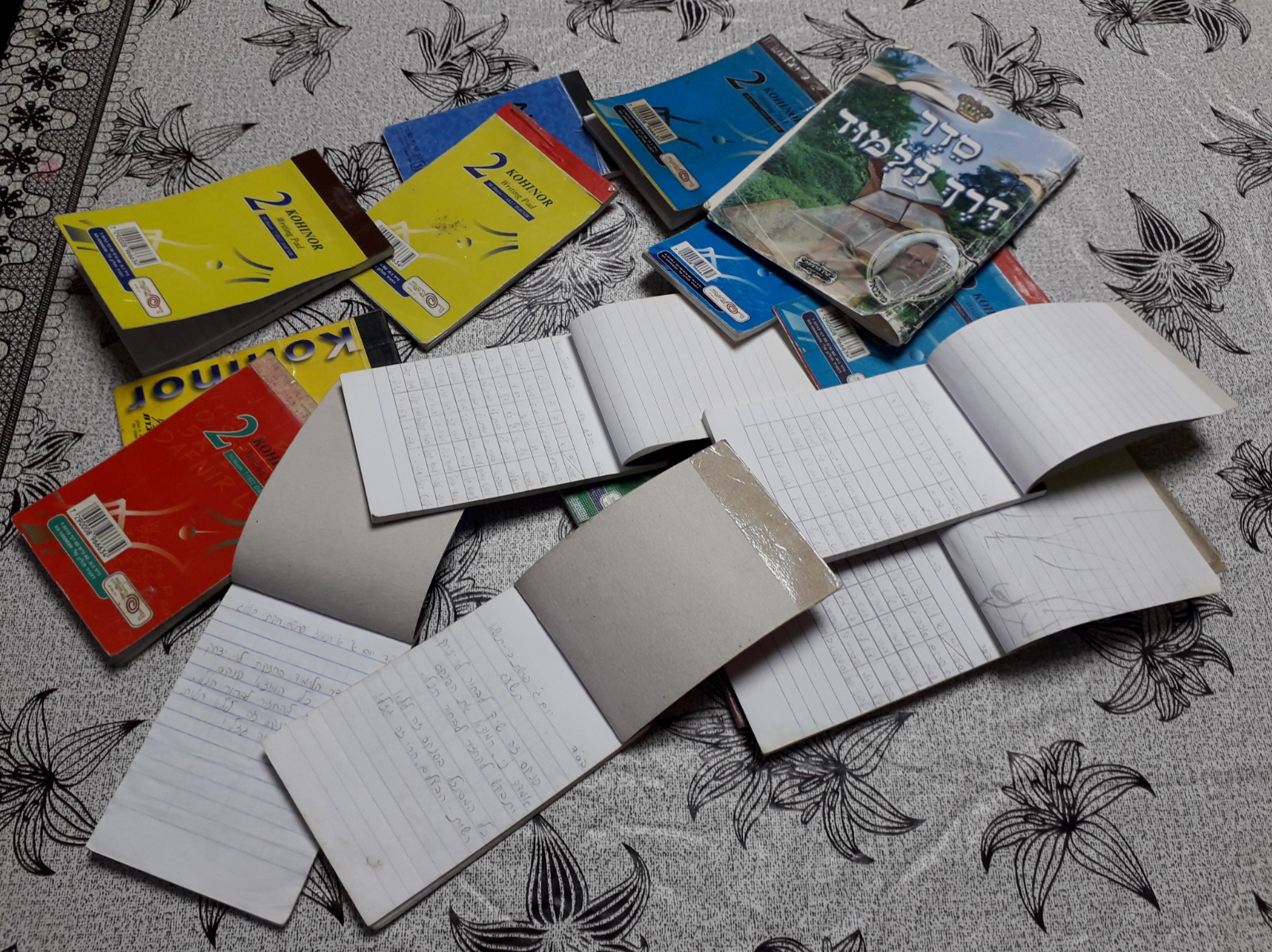3 Years After the 402 Route Tragedy: A Mother's Struggle with Loss
Exactly 3 years apart, two identical and shocking tragedies occurred: the accident on Route 402 and the one on Route 304. Three years after the tragic accident, Levi Yitzchak Amadei's mother says: 'Hashem helps and comforts. When you're close to Him, He gathers the pain.'
 Levi Yitzchak Amadei (Photo: Private Album)
Levi Yitzchak Amadei (Photo: Private Album)The fatal traffic accident on Route 304 took Hannah Amadei, Levi Yitzchak's mother, back three years to the horrific day her 17-year-old son was killed in an accident on Route 402. Upon hearing about the Route 304 tragedy, Hannah was shaken: "My heart was with the bereaved families, it's awful for parents to bury their child. It's hard to bear the thought." Hannah seeks to strengthen and empower: "Our personal tragedy taught me that nothing is taken for granted; everything is a free gift. Within the ordeal, there are many comforts and kindnesses."
The horrific disaster on Route 402 occurred about three years ago, also on a Sunday in the early afternoon. Six people lost their lives in the accident, including Levi Yitzchak. Last Sunday, a fatal accident occurred on Route 304, where Rachel Gutman and Ruchama Rosen were killed. In a chilling coincidence, the accidents happened three years and several hours apart. "When I heard about the accident, more than thinking about my own pain, I thought about the grief of the families, the terrible sorrow of parents burying their daughter. I thought about the families' struggles and what's still to come. When soldier Yosef Cohen was murdered in a terror attack at Givat Asaf about two months ago, I wanted to go comfort his mother.
"I wanted to give her a big hug and say: 'Hashem is with you in these hard times.' Though I couldn't go, every time I hear about a disaster or terrible tragedy, I connect with the intensity of the pain and pray for the strength for them to gather themselves and move forward for the sake of the rest of the family. Hashem helps and comforts. When you speak with Him, He listens, gathers the pain, sends healing, and shows you there are many reasons to be thankful for what you have – we must not forget this."
In her profession, Hannah is a teacher of Hasidism. Her husband, Rabbi Hillel Amadei, is a head of a yeshiva and an educator in Yavneel. During the days of mourning for her son, Hannah was the one who strengthened the numerous comforters who came to her home during the shiva.
Levi Yitzchak, the third of Rabbi Hillel and Hannah's nine children, was named after Rabbi Levi Yitzchak of Berditchev, who is buried in Berditchev, Ukraine, and known as "the defender of Israel." The 17-year-old was studying at a yeshiva in Bnei Brak. On that Sunday, he traveled to Jerusalem to pray at the Western Wall for the success of his studies at a new yeshiva he wished to attend. On his way back, he boarded Route 402, which collided with a truck en route to Bnei Brak. Six people were killed in the accident that shocked the nation.
The boy's parents had no idea a severe accident had occurred. "The only one who heard about the event was his older brother, Eliezer Shlomo," Amadei recounts. "He was the last one Levi Yitzchak spoke with, informing him he was getting on the bus. He always updated us on his whereabouts. When his brother saw he hadn't called, he called him, but the phone was unavailable. At the same time, he heard about the crash, grew worried, and immediately began searching for him. No one knew what had happened to him. Meanwhile, security forces arrived at our house and informed my husband."
A Farewell Kiss on the Forehead: "I Made Him Feel Loved and Appreciated"
Three weeks before the accident, Hannah last saw her son: "He stood by the door before traveling to Bnei Brak, and I felt the urge to give him a kiss on the forehead. That was, in fact, a farewell kiss, the last time I saw him. My heart breaks thinking about these moments, if only I'd known it was the last time I'd see him. My comfort is that I made him feel loved and appreciated, and I prayed for his success. I draw strength from the thought that he prayed at the Western Wall before traveling to Bnei Brak, prayed for success in the yeshiva, and ascended to the yeshiva above. I thank Hashem that, thank God, he passed as a true son of Torah."
What kind of boy was he?
"Levi Yitzchak was full of life, full of joy, and giving to others. He had many aspirations and desires. He always wanted to make everyone happy – that everyone, his parents, and those around him, be well. He helped everyone in every situation. He knew how to help arrange a hall for a party or assist in organizing trips. He was brilliant at it. He had an aesthetic sense, setting the Shabbat table beautifully. Besides that, he was a listening ear to those without someone to listen. He brought joy to lonely people, the elderly, or those suffering for any reason. He couldn't bear seeing sad people around him. During holidays, he'd visit nursing homes to cheer up the elderly."
 (Photo: Private Album)
(Photo: Private Album)Levi Yitzchak played the guitar. In one of his last conversations with his mother, he expressed a desire to learn to play the drums. "I told him, with Hashem's help, you will learn," Hannah shares. "We were talking when he was at a wedding to cheer up an orphan. He was an amazing boy, and I'm sorry I didn't get to lead him to the chuppah, and he didn’t have the chance to establish a home in Israel."
Losing a son is a tragedy beyond measure. The immense pain pierces the parents' hearts and increases every year. "There is a strong yearning for him," Hannah says. "Moreover, thoughts of him accompany me, I remember his smile, his love for others, and his love for the Torah. At the same time, there's great strengthening in faith and the understanding that Hashem knows best and decides what happens in the world. There is a Master of the house who runs the world in the best way possible. We need to know that all the questions that arise in our heads should be shared with Hashem – He helps and supports. He provides true peace of mind. I study teaching in Bnei Brak and initially thought that it would be better to travel by bus than by car. I did so, and the travel hours brought mental anguish. I sat on the bus in the seat next to the driver, not in the supposed seat Levi Yitzchak sat in. The entire journey, I replayed what happened and asked the Creator questions. I eventually understood that riding the bus amplified the pain. There is no point in wallowing in pain, especially as a mother who needs to give to her other children. I decided to drive my car, and thank God, I felt good, and the journey wasn’t distressing. A person needs to help himself and draw strength even if it comes from the depths."
Raising Awareness for More Attentive Parenting
Hannah shares that since her son's passing, they have been working on his commemoration and memory. "In the first year, I was busy doing charitable acts in his merit. In the second year, thank God, we inaugurated a Torah scroll on his birthday and held a large meal. They say introducing a Torah scroll is like a marriage celebration, so it was joyful but not the same joy; it was a comfort for Levi Yitzchak's memory.
"My goal is to encourage parents to be more aware of good parenting. Sadly, after my son’s death, I became a more attentive mother to my children. As parents, we have diamonds in our hands – our children. Our job is to refine these diamonds and allow them to reach their potential and capabilities. To love them at every stage of their path, growing them both spiritually and emotionally. In the past, when the children were younger, my husband would return from the kollel at 4 PM with them. It was a fixed meeting where the whole family would sit and eat lunch, like a Shabbat table. It was an amazing family experience that strengthened and bonded us. It’s not taken for granted to sit together every day to eat. It requires mental, emotional, and physical availability, but we did so. Over the years, the children grew, and the routine changed, stopping this custom, but with Hashem's help, we’ll try to revive it. It’s incredible what power it gives the children and the parents to sit and eat for an hour together without phones and distractions.
"I decided, G-d willing, to tell my younger children a story before bedtime, and thank G-d, I purchased books so they would be accessible. Before bed, we do a shared prayer of thanks in which I thank Hashem in front of the children for the gifts He gave me, for the good children, thank God, for the food, health, and all the kindness. It teaches them to appreciate and also strengthens and brings us closer because they see their mother notices them positively – and there is nothing more important to a child than knowing that their mother sees and appreciates the good in them.
"Additionally, without a vow, I pledged to tell them that I love them. We love our children, appreciate them, but don't always bother to verbalize it and say: 'I love you,' 'I am proud of you,' 'What a wonderful child I have,' 'Thank Hashem for giving me such a child.' We assume cooking or purchasing is enough, and certainly, the child knows and feels the heart and sees I pray for them. Here lies our big mistake. The child needs to hear it, and through this, we grow them even more.
"I recall that several weeks before the accident, Levi Yitzchak sensed that I was hurting from a certain disappointment. He approached me and showed the notebook in which he meticulously recorded his daily study achievements. I was delighted, I needed nothing more. But I didn't know this would be the greatest and most important memoir and pride he left us. For that alone, my heart aches – not expressing it enough, not fully appreciating this gift, these enormous gifts. May it be Hashem's will that now I can set it right. Thank Hashem for giving me wonderful treasures, and I will strive to invest all my strength and love in them."
 Study notebooks (Photo: Private Album)
Study notebooks (Photo: Private Album)Being Thankful for What Exists: Knowing There's Comfort and Kindness in the Ordeal
One of the tools that help Hannah is gratitude to the Creator for what exists. "We have much good in life, and we must say thank you for it. Gratitude broadens one's mind, allowing us to see the positives, even if there's a hole in the heart due to loss. Whenever I feel sad, Hashem shows me that thank G-d, we're a blessed family, and there is whom to give and bestow. Thank G-d, I'm busy with action and giving; there's whom to prepare meals for, after whom to clean the house. Ultimately, a person who sinks into sadness distances themselves from people and Hashem. One of the tools that help keep me joyful and optimistic is avoiding listening to bad news; I truly try not to listen to news or hear about disasters. It's burdensome to the soul. Therefore, I didn’t hear about the accident that happened on Sunday. I was informed of it over the phone while shopping and felt bad. It was hard to contain the pain, the thoughts of the bereaved families, and the injured families.
"I teach Hasidism and teach faith and Hasidic stories that explain what's happening in this world. In many ways, this occupation has built tools for my soul, understanding that my son is in a world that's entirely good; he completed his mission here and ascended to the heavenly yeshiva, a true son of Torah. We still have a role and purpose to fulfill in this world with courage and joy."

